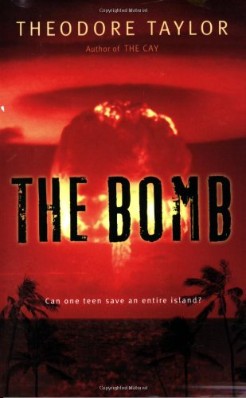Just before the roosters crowed one day in late March 1944, Sorry Rinamu was awakened by great, angry roars from the sky, louder than rolling thunderclaps. Close as the palm-tree tops. Fast moving.
There'd been no warning that dawn. Thick silence; then the sudden, deep growls from above.
Terrified, he jumped off his sleeping mat, and ran outside the family dwelling, which faced the quiet lagoon. He was wearing homemade shorts of sun-bleached rice-bag material, his usual clothing day or night.
His mother and younger sister scrambled out behind him like frightened geese, almost falling over each other. Teacher Tar Malolo, who was living with them that week, came out, too.
His grandfather and grandmother followed. There were high-pitched wails and screams of ajihi, small children, from the other village dwellings that faced the beach. Everyone had been deeply asleep, accustomed to the lullaby of the surf, the friendly rustle of the palm trees.
In the shallow gray light Sorry could see eight blue aircraft circling far out over the lagoon, single file, like a flight of pelicans. Then they turned back toward the thatch-walled, thatch-roofed houses, flying so low that Sorry could see the outlines of bobbing heads in the open cockpits. The roar grew again. For a moment, as the planes paralleled the beach, then cut sharply over the north end of the island, he thought they'd unload their bombs. Blow up the houses, kill everyone.
His sister, Lokileni, thought so, too. She stood there in a faded cotton nightshirt, screaming. Slender body shaking. Eyes tightly closed to ward off death.
His jinen, his mother, Ruta Rinamu, went to her knees in the sand, praying, eyes closed, the tips of her fingers touching her chin.
Sorry held his breath. His brown eyes were wide with fear. Please do not kill us!
His Jimman, his grandfather, Jonjen, stared at the planes as if his look could drive away the evil vultures. He did not seem afraid.
